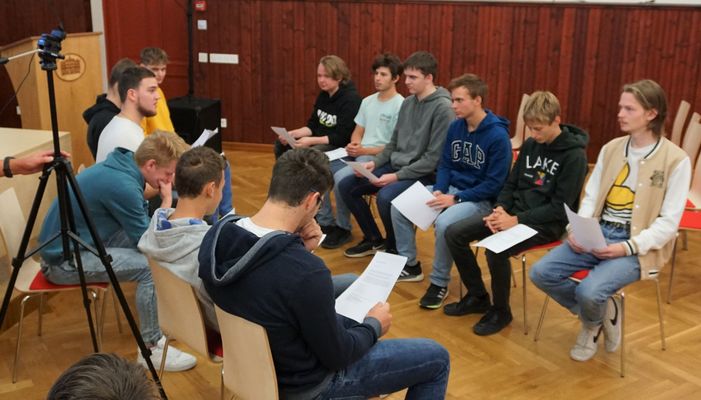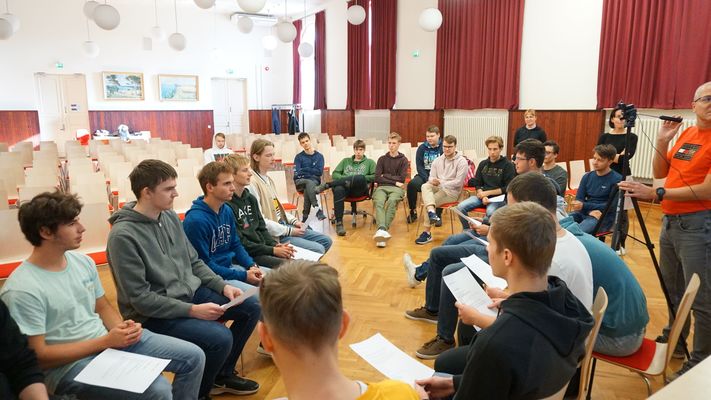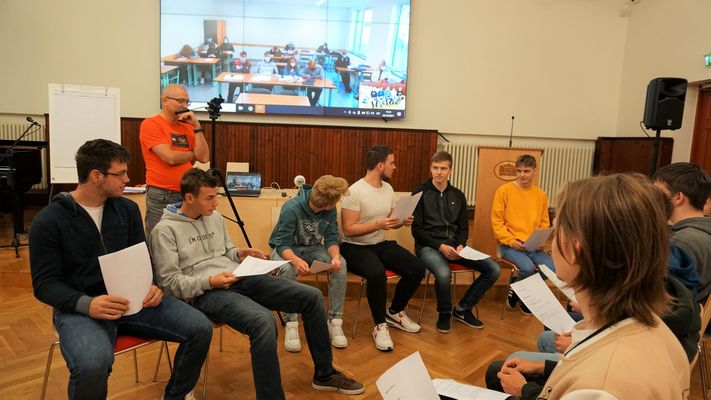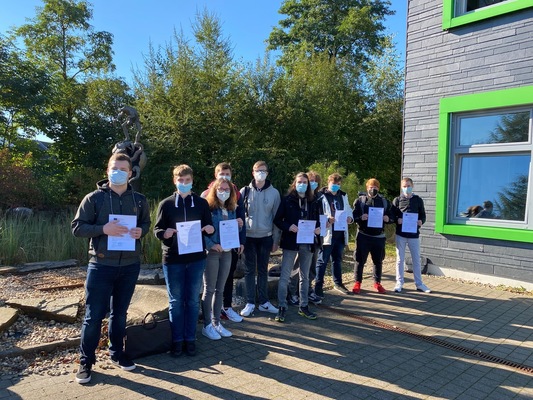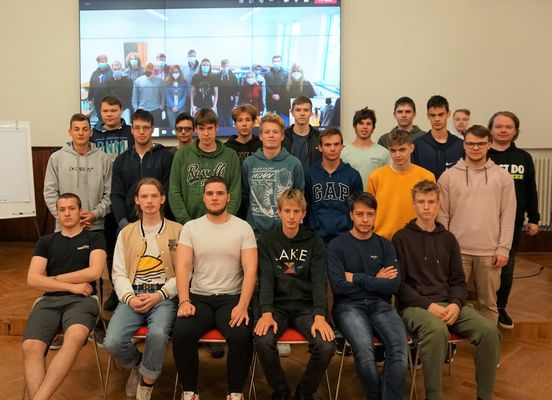Monday, 4th of October was the first day of Erasmus+ project meeting in Estonia, hosted by Rakvere Ametikool.
The Slovenian delegation consisting of 12 students and 2 teachers arrived in Estonia a day before. Therefore, the meeting is held in a hybrid form, which meant that German students attended the meeting via Teams and other shared on-line channels.
Students from all 3 partner-countries had prepared videos about their home countries and home-schools. These videos were presented today. Despite all the project participants being future IT-specialists, we still had some technical difficulties to connect participants in 2 countries. However, students enjoyed watching the videos, particularly because these videos were completely different from each other. It was especially interesting for them to get to know the partner schools and learn more about cultural aspects of the partner countries involved. After the presentation of the videos, students engaged in a discussion via Teams. They talked about a wide range of issues ranging from music genres, national sports to covid-regulations, which affect us all in partner-countries.
In the afternoon the Slovenian delegation took a tour of the premises of Rakvere Ametikool and enjoyed a tour in Rakvere including a visit to Town Hall and Smart House. 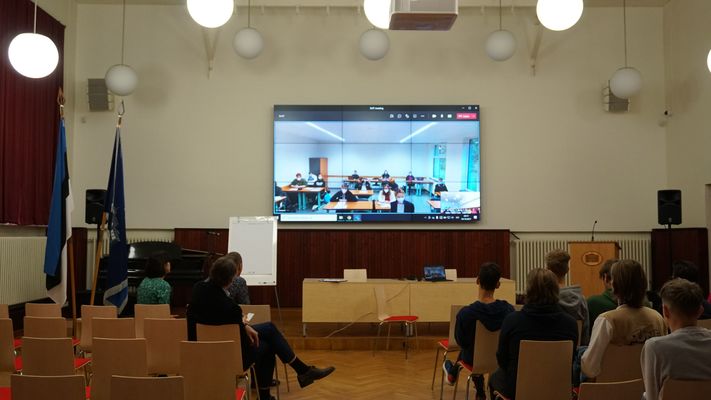
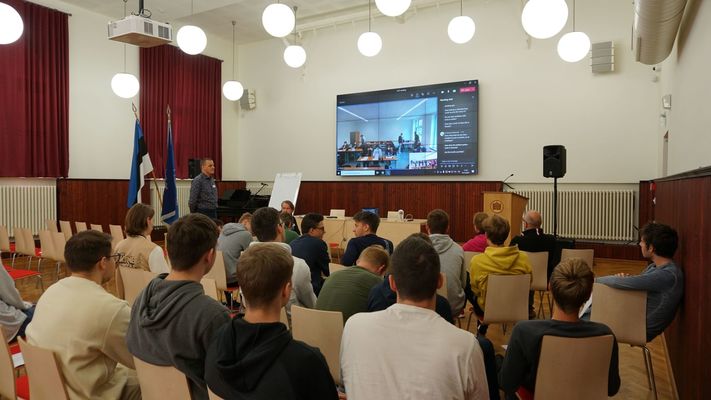
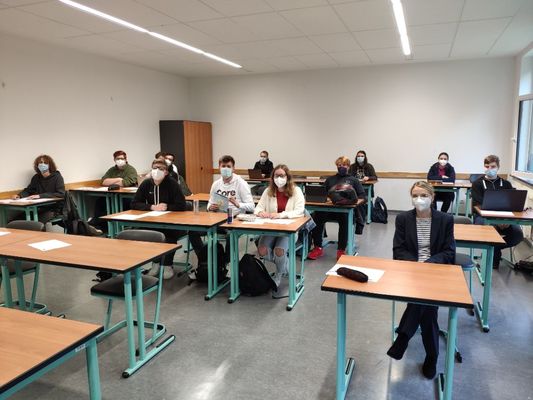
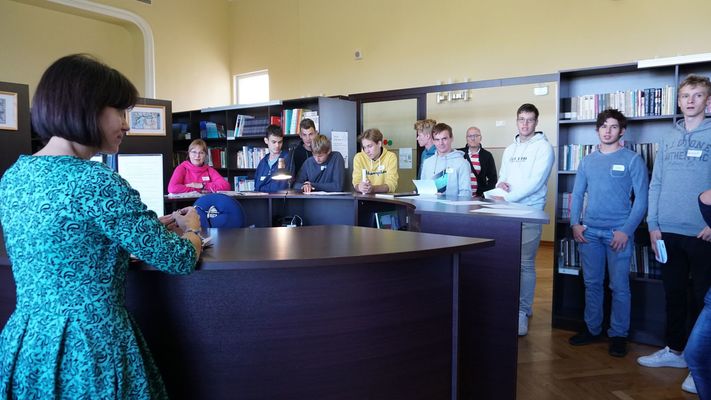
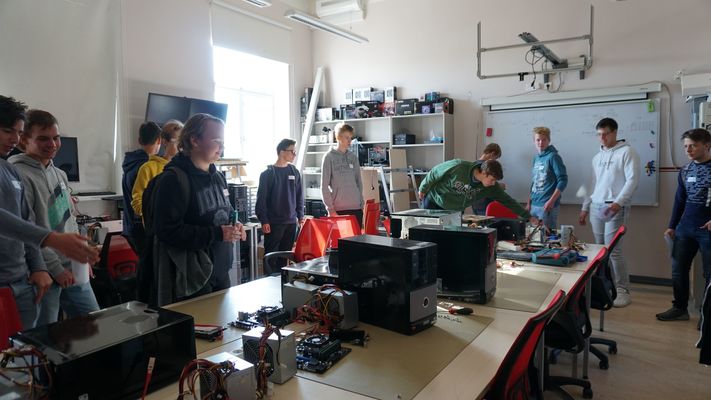
Tuesday, 5th of October - the 2nd day of the meeting in Estonia started with the lesson “Estonian for beginners”. Slovenian and Estonian students formed teams in the classroom in Estonia and German students joined the lesson on-line. It turned out that learning the Estonian language is not that easy. However, students learnt how to introduce themselves in Estonian. German students tried different translation tools to complete the tasks and were surprised by the results. Students in Estonia could practise using these phrases first hand. Hopefully the Slovenian students who are visiting Estonia will make use of this knowledge during their week-long stay there.
The next item on our agenda was a workshop on creating Europass CV which was led by Estonian Europass Centre. It took a lot of time to create a professional Europass profile and a CV. The time assigned for the workshop was a bit too short and, therefore, some of the students had to finish their CV during the week. Still, a lot of useful tips and info on how the Europass CV can be used were learnt. At the end of the week, all students who took part in the meeting will have drafted an appropriate CV to be able to apply for internships all around Europe.
In the afternoon Estonian and Slovenian students had a guided tour of Rakvere Castle where they learnt about the history and enjoyed different activities.
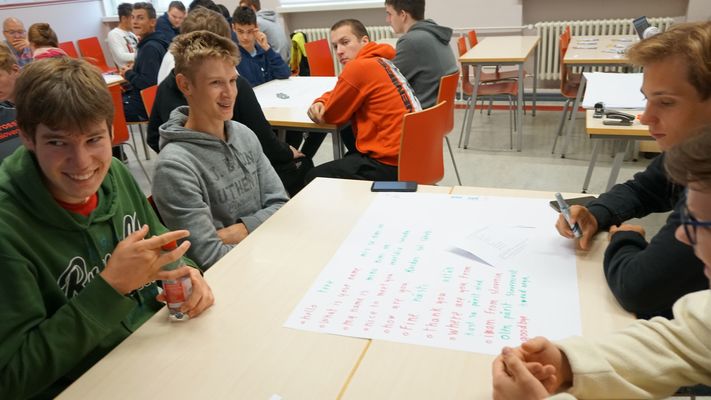
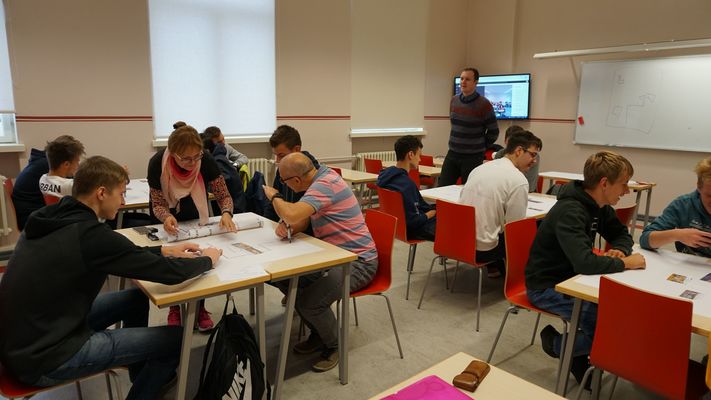
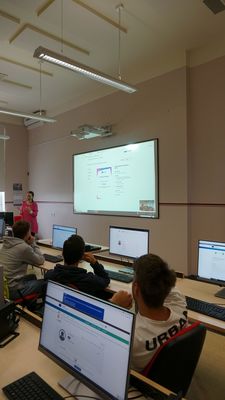
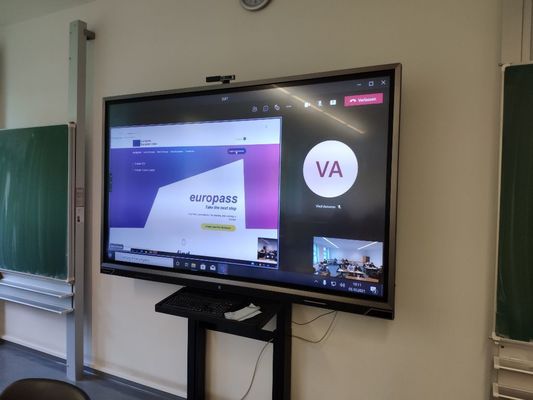
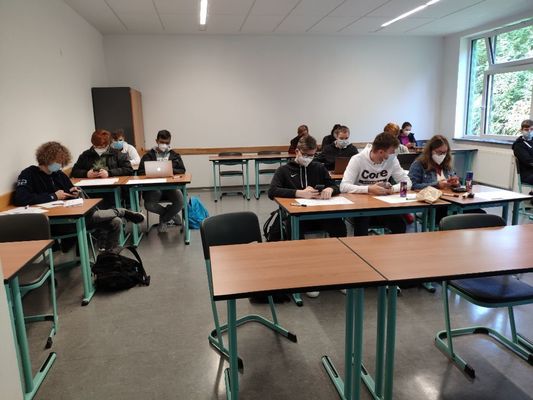
For Estonian and Slovenian students Wednesday, 6th of October started with a trip to Tallinn, where they visited the Estonian Career Centre. At the career centre they participated in a workshop on how to prepare for a job-interview including an overview of the documents necessary. After that, they did simulation of job-interviews, which were analysed by a career councillor later so that they could gain useful information on what to pay attention to, what mistakes to avoid and why employers use different types of questions and different types of job-interview for. All students also had possibility to use interactive displays from interactive work-experience in certain field to analyse skills a person has - all these activities are aimed at being able to better analyse yourself and make better choices for future job or studies.
Afternoon was spent in the Estonian Maritime Museum, where students learned about one of the greatest maritime tragedies in history, which took place in Estonian coastal waters – the naval mine battle of Juminda which happened 80 years ago. This tragic event is little known in history even though it involved several times more casualties than Pearl Harbor or Dunkirk.
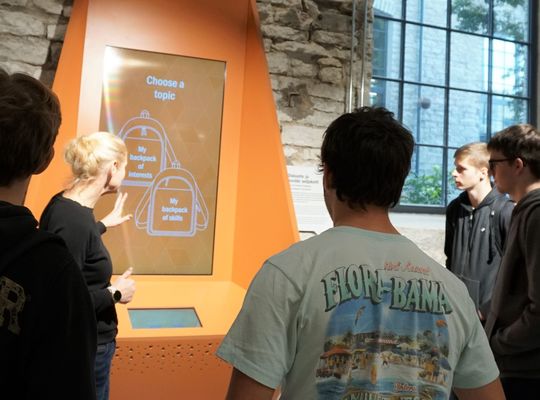
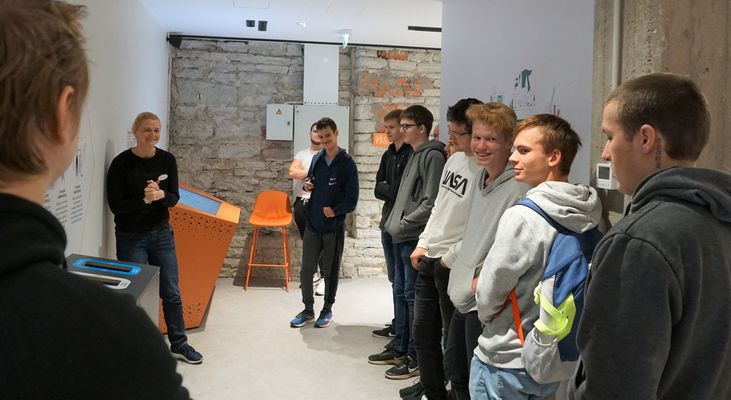
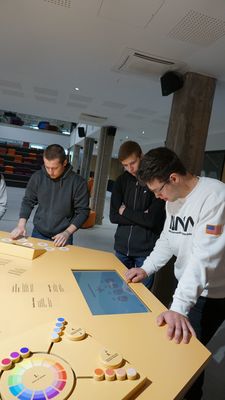
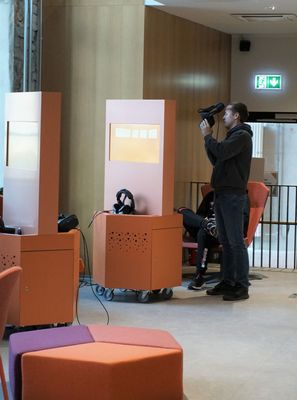
On Thursday, 7th of October students participated in a workshop about intercultural studies, which was led by the German partner. As an ice-breaker, students were asked to draw houses from a different culture in pairs. These houses were presented to each other. The aim of this task was to comprehend the impact of cultural conditioning on people's ability to complete a task.They could also learn more about stereotypes and different perceptions of cultures. Furthermore, they defined what culture meant to them. After that, students drew up infographics using Canva on intercultural differences and similarities in 3 countries which take part of this project. They focussed on different topics such as sports, music, religion and food, etc. In general, students learnt more deeply what to pay attention to when visiting another country in which the culture is different from your own one.
In the afternoon there was a workshop by the Estonian Career Centre about looking for a job and study opportunities abroad. Students gained a lot of useful information including recommendations on how to organise, plan, finance and prepare your stay abroad. Especially German students truly enjoyed this part of the day.
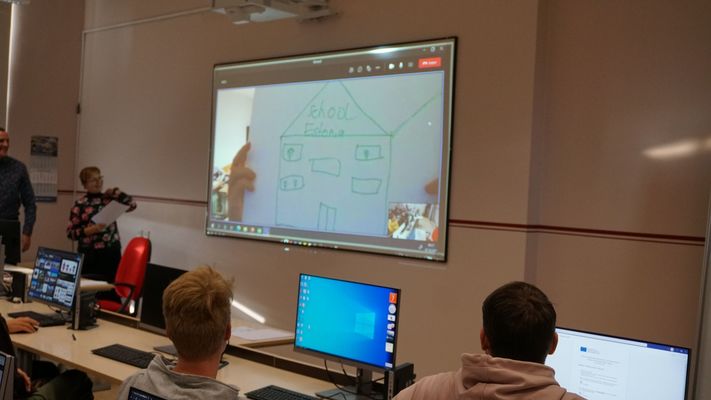
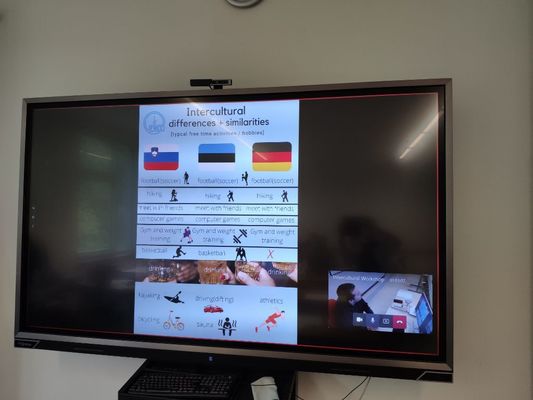
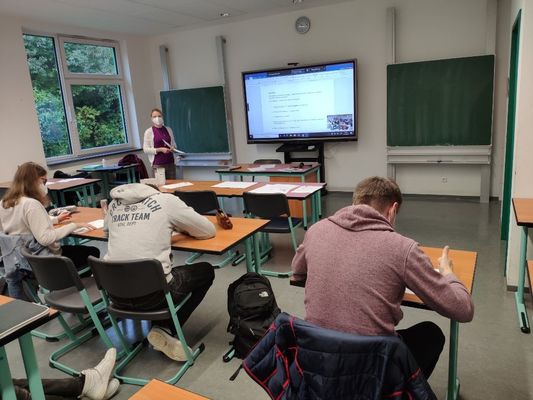
Friday 8th of October was the last day of the seminar led by the Estonian school.
In the morning, students drew up infographics on the topic “Tips for job-application processes”. This enabled them to present all information they had gathered during the week.
After that, students were asked to prepare and present for simulation of job-interview. They conducted job interviews. This was a good way for Estonian and Slovenian students to provide their German partners with an overview of what they had learnt at the career centre on Wednesday. Six students acted as management of the company called Nordic IT, which wanted to recruit IT support specialists. Students conducted a job-interview with 6 other students who were acting as applicants for the position and they then had to decide whom they would choose. Since the company needed two people, it was tough decision for the management as all candidates were professional. German students and some of the Estonians and Slovenes acted as independent observers of the interview who also had to explain who they would have employed and justify their decisions.
All students gave feedback about the seminar by filling in an online questionnaire and received their certificates of attendance. In Germany the deputy headmistress handed out the certificated to all students, who actively took part in the meeting.
Students are looking forward to next project meeting in Germany.
